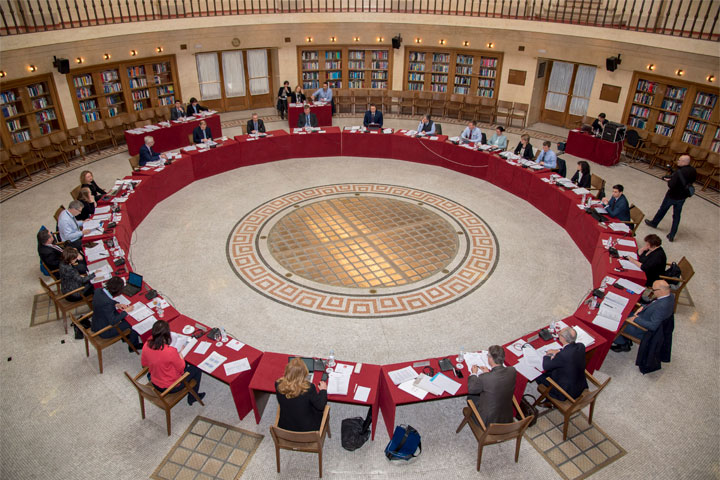
The Croatian National Bank hosted a regular annual meeting of the BIS Working Party on Monetary Policy in Central and Eastern Europe from 25 to 27 February this year. In addition to the representatives of the organisers, the BIS and the CNB, this event gathered representatives of the European Central Bank and the central banks of Albania, Austria, Bosnia and Herzegovina, Bulgaria, Montenegro, the Czech Republic, Estonia, Finland, Italy, Latvia, Hungary, Macedonia, Germany, Poland, Romania, Slovenia and Serbia.
The participants discussed economic growth in Central and Eastern Europe, its main determinants and growth sustainability over a medium and long term. They analysed risks, both on global and regional levels, and their impacts on expectations regarding economic growth and price stability, and discussed the issue of structural reforms that might boost potential growth. Discussing the region's financial stability, the participants outlined the risks of housing price growth, private sector debt, and the effect of the possible rise in interest rates and touched upon credit activity of domestic banks and their performance.
The participants shared their views on developments in the labour market, employment, unemployment, wage dynamics and productivity, with particular attention to youth unemployment and worker migration dynamics and their impacts on labour markets in the countries of the region.
Another topic of discussion was the performance of monetary policies of the central banks in the region amid ongoing challenges. The participants exchanged experiences with measures taken in response to inflationary and exchange rate pressures and also examined the adequacy of the level of international reserves in present circumstances. They also analysed the effects of the high degree of euroisation in some countries, particularly its effect on the monetary transmission mechanism. The participants also expressed their views on the costs and benefits of accession to the European Exchange Rate Mechanism (ERM II).
